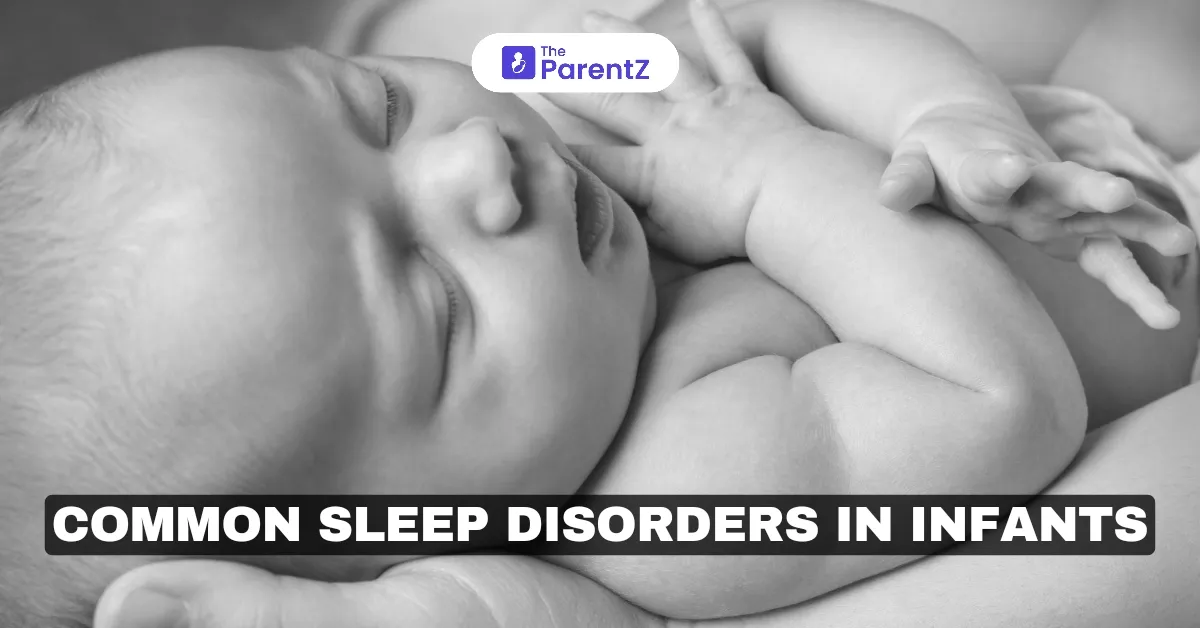Sleep is essential for an infant’s physical growth, brain development, and immune health. However, many infants face sleep challenges or disorders that can impact both their well-being and the family’s daily life. Understanding these common sleep disorders, their causes, symptoms, and solutions can help caregivers support better sleep for their little ones.
1. Infant Insomnia
What is Infant Insomnia?
Infant insomnia is characterized by difficulty in falling asleep, staying asleep, or sleeping for long enough, despite conditions that are conducive to rest. It can result in an infant waking up frequently and struggling to settle back to sleep.
Causes of Infant Insomnia
• Developmental Changes: Growth spurts and teething can disrupt sleep.
• Hunger: Young infants often wake up for nighttime feedings, especially in the early months.
• Separation Anxiety: Around 6–9 months, babies may wake more often due to a desire for proximity to caregivers.
Symptoms
• Difficulty falling asleep or frequent nighttime awakenings
• Fussiness or irritability during the night
• Shortened or fragmented sleep cycles
Solutions
• Establish a Consistent Bedtime Routine: Simple, calming activities like a warm bath or quiet lullabies can help signal that it’s time to sleep.
• Gentle Sleep Training: Techniques like “pick up, put down” can help encourage self-soothing.
• Create a Calm Sleep Environment: Dim lights and reduce noise to create a conducive sleep space.
2. Sleep Apnea in Infants
What is Sleep Apnea in Infants?
Sleep apnea is a sleep disorder in which an infant’s breathing repeatedly stops and starts. It may be obstructive (due to airway blockage) or central (due to immature brainstem control of breathing). Sleep apnea in infants can be more serious and requires monitoring.
Causes of Sleep Apnea in Infants
• Premature Birth: Premature babies have a higher risk of central sleep apnea due to an underdeveloped respiratory system.
• Structural Issues: Certain facial or airway abnormalities may lead to obstructive sleep apnea.
• Family History: A family history of sleep apnea may increase the risk.
Symptoms
• Pauses in breathing, often followed by gasping or choking
• Snoring or noisy breathing
• Restless sleep and frequent waking
Solutions
• Consult a Pediatrician: Sleep apnea in infants requires professional assessment.
• Monitor and Support: Some infants may need respiratory support or close monitoring.
• Ensure Safe Sleep Positioning: The American Academy of Pediatrics recommends placing infants on their backs to sleep.
3. Night Wakings
What are Night Wakings?
Frequent night waking is common in infants, especially in the first 6–12 months, as they transition through different sleep cycles and experience growth and developmental milestones.
Causes of Night Wakings
• Developmental Milestones: New skills like rolling over or crawling can temporarily disrupt sleep.
• Teething: Discomfort from teething can lead to night wakings.
• Hunger or Feeding Needs: Many infants need nighttime feedings in the early months.
Symptoms
• Waking multiple times at night
• Difficulty settling back to sleep
• Increased crying or fussiness
Solutions
• Practice Gentle Soothing Techniques: Techniques like rocking or using white noise can help soothe infants back to sleep.
• Gradually Extend Feeding Intervals: As babies grow, slowly extending intervals between feedings can help reduce nighttime wake-ups.
• Encourage Self-Soothing: Allowing brief pauses before intervening can help infants learn to self-settle.
4. Restless Sleep and Movement Disorders
What is Restless Sleep?
Restless sleep includes frequent movements, flailing, or muscle jerks during sleep. In infants, this can be a normal part of sleep development but may sometimes indicate an underlying issue.
Causes of Restless Sleep in Infants
• Normal Neurological Development: Newborns have immature nervous systems that can cause jerky or restless movements during sleep.
• Discomfort: Teething, gas, or other discomforts can lead to restlessness.
• Iron Deficiency: In rare cases, low iron levels may contribute to restless sleep.
Symptoms
• Frequent muscle jerks or twitching
• Restless, light sleep with frequent awakenings
• Excessive kicking or movement during sleep
Solutions
• Swaddling for Newborns: Swaddling can help soothe and reduce movement in young infants.
• Gentle Massage Before Bed: A calming massage may help reduce restlessness.
• Ensure Adequate Nutrition: If restlessness persists, consult a pediatrician about possible nutritional needs, like iron.
5. Parasomnias (Night Terrors and Confusional Arousals)
What are Parasomnias in Infants?
Parasomnias are unusual behaviors during sleep, such as night terrors and confusional arousals. Although uncommon in infants, they can appear as the child grows into toddlerhood.
Causes of Parasomnias
• Sleep Transitions: Shifts between sleep stages can cause partial awakenings.
• Sleep Deprivation: Lack of adequate rest can trigger parasomnia episodes.
• Family History: A family history of parasomnias increases the risk.
Symptoms
• Sudden crying, fussing, or moving during sleep
• Appearing disoriented or not fully awake
• Difficulty calming down, even with soothing
Solutions
• Maintain a Regular Sleep Schedule: Consistent sleep reduces the likelihood of parasomnia episodes.
• Avoid Overstimulating Activities Before Bed: Calm, quiet activities can promote smoother transitions between sleep stages.
• Observe and Reassure: Avoid waking the infant, as this can increase confusion. Instead, offer gentle reassurance until they settle.
6. Circadian Rhythm Disorders in Infants
What are Circadian Rhythm Disorders?
Circadian rhythm disorders involve disruptions in the timing of sleep and wake cycles, leading to irregular sleep patterns. In infants, this is often due to a natural adjustment period as they develop a more consistent sleep-wake cycle.
Causes of Circadian Rhythm Disorders
• Immature Circadian System: Newborns take time to develop a 24-hour rhythm.
• Environmental Factors: Light exposure and feeding schedules impact circadian rhythms.
Symptoms
• Difficulty establishing a day-night sleep pattern
• Irregular sleep times, with frequent wake-ups during the night
• Shorter or fragmented sleep periods
Solutions
• Expose to Natural Light: Daylight exposure during the day helps infants adjust to a circadian rhythm.
• Set a Consistent Routine: Even a simple routine helps reinforce night and day.
• Gradual Adjustments: Slowly adjusting feeding and bedtime routines can help establish a predictable sleep-wake cycle.
Final Thoughts on Sleep Disorders in Infants
Sleep disorders in infants can be challenging for both babies and caregivers, but most can be managed with the right strategies. Establishing consistent routines, creating a calming sleep environment, and recognizing when professional support is needed can make a significant difference in helping infants sleep better. As infants grow, their sleep patterns typically stabilize, leading to more restful nights for the entire family.








Be the first one to comment on this story.